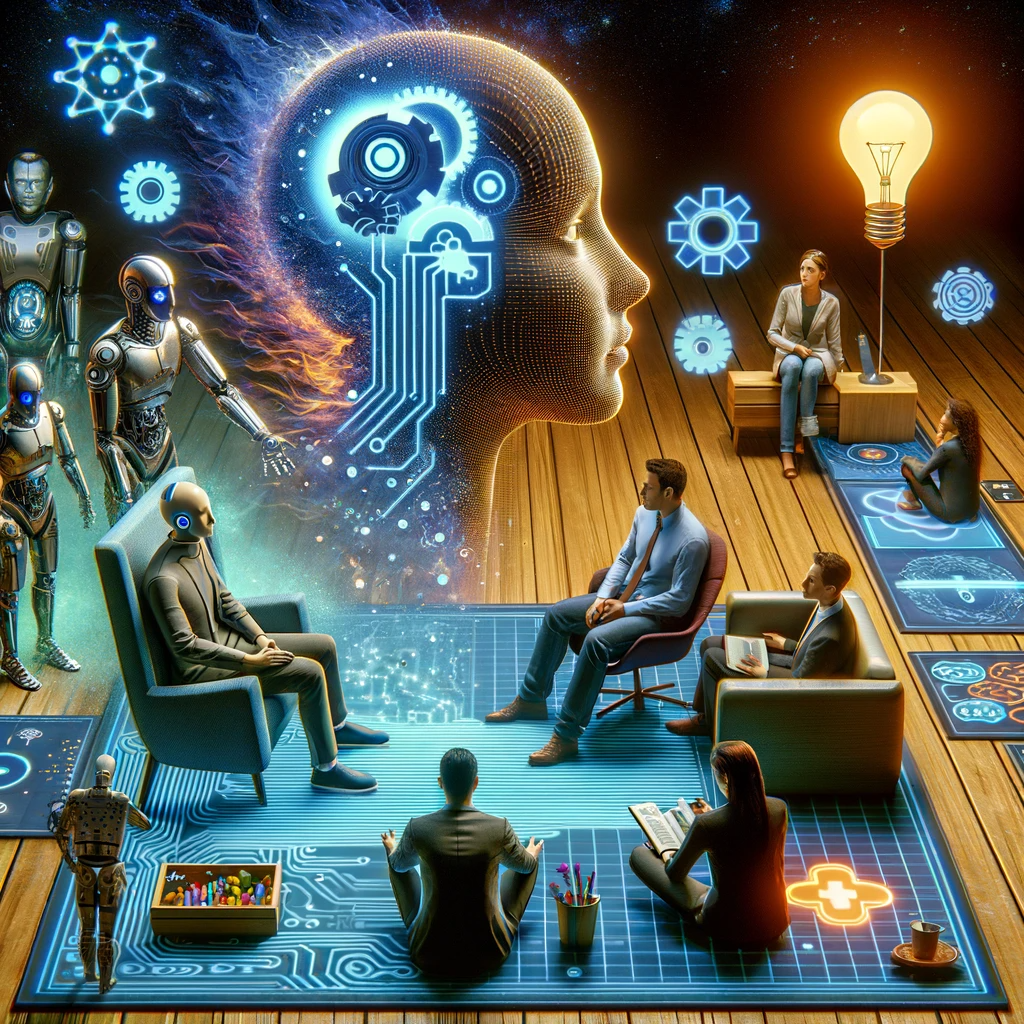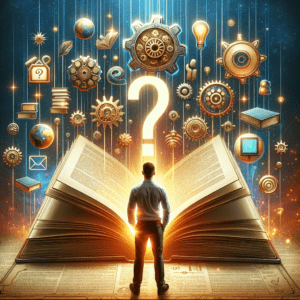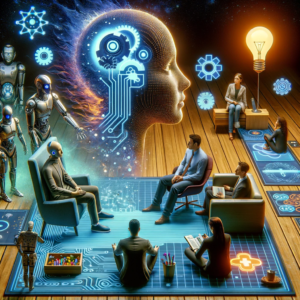I have struggled a bit internally this week with some cognitive dissonance, stress, fear and overwhelm. I feel the world is moving so fast, and most people are not even aware that they are nowhere near able to catch up to it. There are so many ways to explain that feeling but the number one way I am referring to is artificial intelligence within mental health specifically.
To provide some insight, I will list a hodgepodge of random thoughts, questions and ways I can use AI today and associate them with class discussions so far. This communicates the stressful feeling I sometimes experience in class, watching everyone discuss topics without considering the advancements of AI – a potentially dangerous underestimation and rejection of its impact and seriousness. I feel the fear, misunderstanding and lack of awareness of AI is palpable among the general public, and I strive for counselors of mental health to be more cognizant for the sake of themselves and their future clients.
Just A Few Minor Ways We Can Use AI Today (most I have done):
· For accelerated engaged learning, brainstorming, and challenging perspectives
· Improving emotional and cultural competency through research and objective analysis
· Performing dream analysis and simulating counseling roleplays using different theories
· Creating and Analyzing transcripts to identify improvements in counseling skills and assessing progress
· Comparing models and creating custom integrated approaches pulling from multiple theoretical frameworks
· Applying principles of cultural competency using international datasets and language translations
· Writing policies, grants and call to action papers for faster advocacy initiatives
· Summarizing and structuring notes, conceptualizations and thoughts for faster paper creation
· Addressing limitations of multi-cultured or oppressed populations to create custom counseling approaches accordingly
· Summarizing any video/transcript and creating courses, tools or worksheets on complex topics
· Analyzing brain scans and generating video and images of dreams or traumatic events
· Facilitating therapeutic approaches while combining artificial intelligence with virtual reality settings for PTSD
· As A Non-Coder, I can create an application for mental health- perhaps for counselors and clients- using AI within minutes.
· Collaborating with an AI that can simulate the best psychologists, neurologists, and coaches with any specific specialty to improve competence as a counselor and receive immediate feedback.
My Hodgepodge Daily Reality: Thoughts, Concerns and Questions In My Head:
· I believe people are gravitating away from human-human interaction, especially younger people and men- this may increase loneliness and depression and encourage AI companionship, which counselors should be aware of and prepare for.
· Schools around the world are frantically looking into AI and actively engaging with it inside their classrooms. Should mental health educators be prioritizing using AI to better teach students and have them interact with AI in the classroom, expanding lessons and making more competent and tech-savvy counselors?
· The mental health industry is being tapped into by every business sector on the marketplace now. Should we be aware of AI’s potential impacts on the multi-trillion dollar healthcare industry and better prepare counselors to help them thrive in this complex competitive environment?
· Are institutions using outdated methods and straying from the applicability of today’s (and tomorrow’s) reality? Do most people wrongly consider AI futuristic sci-fi myths due to media stereotypes?
· How can we prepare as future counselors for those who will and won’t use AI? Is ignoring it irresponsible?
· What happens when AI and technology cure aging within ten years? What happens when AI and quantum mechanics reveal the very truth and fabric of existence and dismantle the typical interpretations of religions? What discussions are we having as educated multi-cultural inclined counselors that would help prepare us for such realistic and probable soon-occurring events?
· Is diving into AI’s therapeutic applications essential for holistic competence? Should we understand AI(and AGI) more than anyone since it has the power to dramatically affect our clients’ interpretations of reality and challenge morals , values, cultures and jobs and purpose? Does ignoring it contradict multicultural perspectives and do our future clients an injustice?
· Is racism more pressing than the societal and global implications of Artificial Intelligence, which could potentially increase income inequality and exacerbate racial and religious clashes? Ignoring AI
In my view, turning a blind eye to AI is much like how many initially dismissed the internet when it was still in its infancy and largely misunderstood. I firmly believe that now is the time to be having these conversations in education, not
when everything starts to change, but before. Now would be the time to discuss, learn and explore and create new models of thinking and approaches within the mental health space, within the context of the new world order shaped by AI. To me, ignoring AI feels like sidelining the invaluable multicultural perspectives it offers, potentially doing an injustice to our future clients and not preparing counselors for the future mental health issues many may face due to AI disruption.
I understand that mental health professionals and institutions are not experts in the tech industry. However, deeming technology as beyond our scope of expertise in mental health is potentially dangerously limiting, and that unfilled niche is quickly being taken advantage of by everyone outside of the professional health industry. We have seen the consequences of that throughout the expansion of social media and smart phones. More and more evidence shows the rising depression rates with increased screen time and the apparent disconnection of social skills due to technology. If society had the technology available back then to have the foresight necessary to create better mental health research and policies, perhaps we could have helped the world handle the tech boom better. Today we have that technology: AI. I feel that by not embracing integrative approaches that include technology within mental health treatment, we might be inadvertently amplifying its negative side effects and repeating history, but on a much larger and deadlier scale. I often wonder if there might be a new field of psychology waiting to be explored that values the psychological implications of technology’s rapid integration in a globalized society. These tech companies and capitalistic-minded people with their quick tech solutions will inevitably emerge, whether or not mental health professionals are prepared, and will do so within the next 5 years or less. The sense of urgency I feel is profound, yet it seems only a select group shares this awareness. We are only held back by our own limitations we place on our own creativity. And, creative thinking, in my opinion, is really lacking in today’s world.






